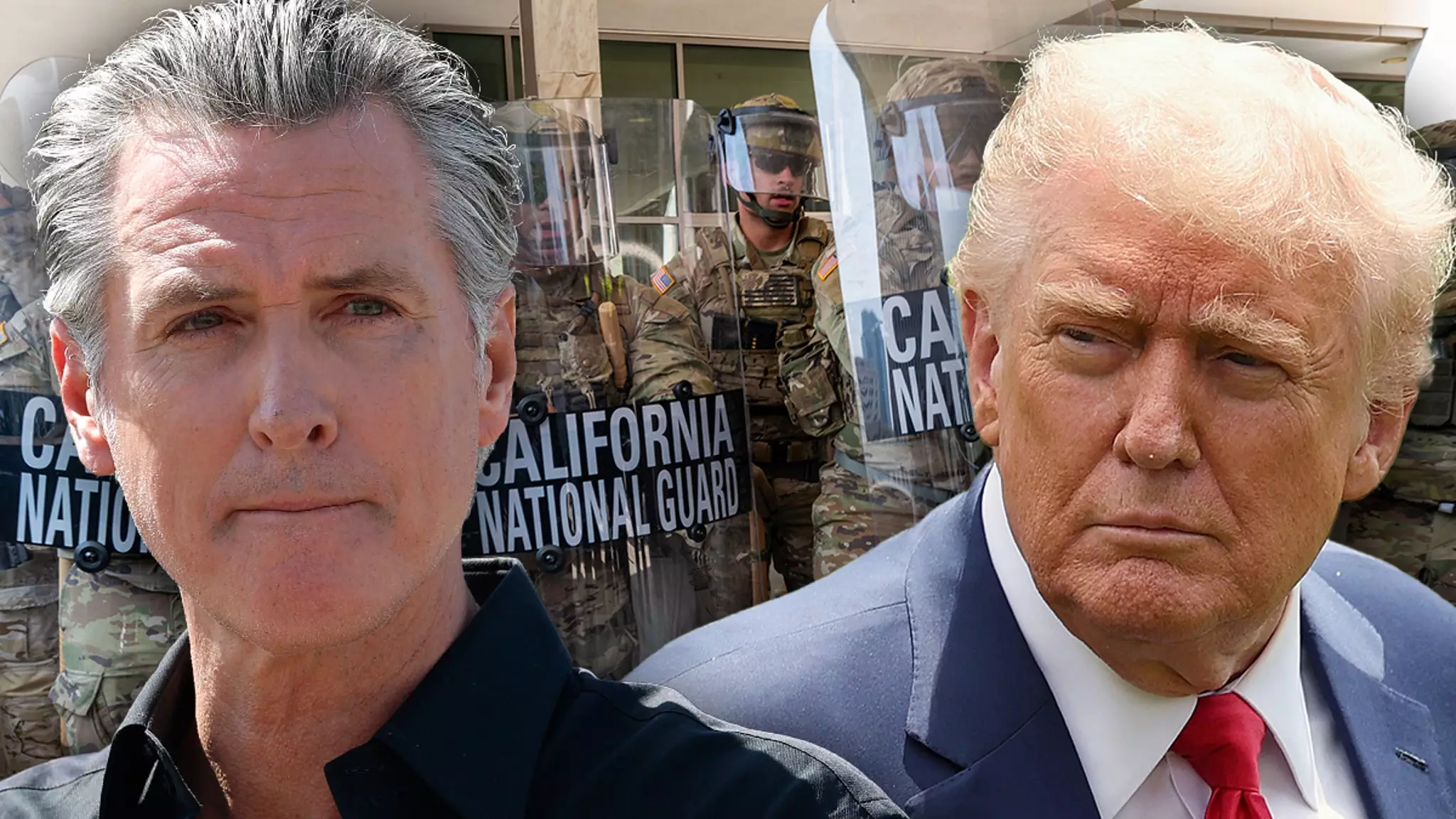The political landscape in the United States has recently become a cauldron of conflict, particularly between state and federal authorities. Governor Gavin Newsom of California has made headlines by taking a definitive stand against President Donald Trump’s controversial decision to deploy the National Guard in response to localized protests against federal immigration policies. As the incidents escalated, with protests fueled by broader concerns about immigration enforcement, Newsom’s legal actions highlight more than just a mere disagreement; they reflect a significant clash of ideologies and governance.
Legal Foundations: Newsom’s Claims
Newsom’s legal challenge is grounded in allegations of constitutional overreach. By filing a lawsuit against President Trump, Defense Secretary Pete Hegseth, and the Department of Defense, Newsom argues that the deployment of the National Guard is not only uncalled for but also unconstitutional. According to his claims, existing statutes dictate that such mobilizations must be conducted through the state governor’s office, thereby positing that Trump’s actions constitute a brazen and unwarranted power grab. The insistence on the governor’s prerogative shapes the crux of the lawsuit, as Newsom asserts that the federal government cannot bypass state authority without due consultation.
A Broader Implication: Straining Federal-State Relations
This confrontation does not merely possess legal implications; it symbolizes a deepening rift between state-level governance and federal authority. At the heart of Newsom’s lawsuits signifies a fundamental belief in the preservation of state sovereignty against what he perceives as a tempestuous federal government willing to sidestep checks and balances. With accusations directed at Trump as being a “stone cold liar,” it underscores the emotional stakes and perceived urgency in the governor’s position. This rhetoric indicates that Newsom views the deployment as not just a tactical error, but a glaring attempt to incite social unrest and instability.
The Civil War Analogy: Newsom’s Rhetorical Strategy
Drawing parallels to an impending civil conflict, Newsom’s rhetoric serves as a call to action for Californians and, by extension, citizens who value constitutional rights. By labeling Trump’s actions as potentially incendiary, Newsom aims to galvanize public sentiment against what he views as an anti-democratic maneuver. The governor’s fiery language sheds light not just on the legal battle unfolding in the courts, but also on the broader societal implications of federal overreach in local matters, especially those involving immigration, a deeply polarizing topic.
The Path Ahead: A Test of Constitutional Bounds
As the case unfolds, one cannot overlook the potential ramifications it may have on future relationships between state governors and the federal government. Newsom’s lawsuit is more than a contest over legal authority; it is emblematic of the tension between differing political philosophies regarding governance, civil rights, and public safety. It could easily set a precedent for upcoming disputes where states feel that their sovereignty is threatened by federal powers. This situation invites a broader dialogue about autonomy, constitutional interpretation, and, critically, the importance of solidifying checks and balances that protect democratic governance. In this heated climate, Newsom’s legal gambit stands as a proclamation of resistance, calling into question who truly holds the reins of power within the United States.

